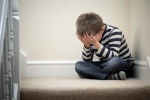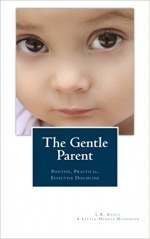When Your Child Says: I Hate You
September 23, 2017
Quote of the Week
"The kids who need the most love will ask for it in the most unloving ways" - Russel Barkley
When Your Child Says: I Hate You
 "When children feel disappointed, frustrated, angry or other difficult emotions, they may say hurtful words. Sometimes those words are “I HATE YOU!” or “I hate you so much mom!”
"When children feel disappointed, frustrated, angry or other difficult emotions, they may say hurtful words. Sometimes those words are “I HATE YOU!” or “I hate you so much mom!”
That small phrase packs quite the emotional punch – especially the very first time you hear it. [...]
“I hate you” is often code for something beyond what we are hearing. Children aren’t always able to express all their feelings in eloquent ways. Especially when they feel overwhelmed or upset. The words they use tend to represent more of how they feel on the inside than what they really think about us. [...]
Hearing “I hate you” is not easy and there are no magic words to say back to erase it. Listening, empathizing, connecting and remembering to be loving enough for the both of you can make a difference. The aim of disciplining children when they use unhelpful words can be to create opportunities for understanding and connection. Hate is a powerful word, with big feelings behind it. Our children need guidance in these moments so they will be able to do better. Don’t be afraid to show kindness to a child that is feeling hate." [Read More]
Reading Corner
 Title: The Gentle Parent: Positive, Practical, Effective Discipline (A Little Hearts Handbook)
Title: The Gentle Parent: Positive, Practical, Effective Discipline (A Little Hearts Handbook)
By: L.R.Knost
Ages: Adults
Why? "This was one of the most helpful, clear, concise and practical books on parenting without the use of punishment to control behavior that I've ever read. I have one child who is 15 months old and very active, spirited and intelligent. I desperately needed insight and guidance on shepherding him, not controlling him, and I found it in this book. As a parent and a child and family therapist, I connected immediately with L.R. Knost's evidenced-based suggestions. This is not a book on how to fix your child or manipulate them into behaving differently, but a loving challenge to parent the way we would all want to be parented...with kindness, patience and respect." - Amazon Reviewer
Be the Change
When we put ourselves in the shoes of our children, we know that emotions, emotional patterns and reactions aren't all that different from the way adults respond. The art of looking within during childhood helps kids to cultivate inner strength throughout their lives. From the article, it seems most emotional outbursts stem from some very simple roadblocks. If seen and responded to with love, these obstacles can turn into beautiful flowers.
This week try the art of looking within to observe your own patterns or those of your children, especially if an unpleasant feeling arises. Based on the article and suggestions, can you try out some ways that can turn them into positive responses? What did you observe in the process of this transformation?





